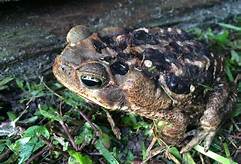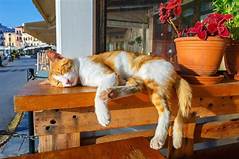Can You Own an Otter as a Pet?
Otters are playful, intelligent creatures that can make great companions. However, before you decide to own an otter as a pet, there are a few things you need to know.

Advantages of Owning an Otter
There are several advantages to owning an otter as a pet. Otters are:
Playful: Otters love to play and can provide hours of entertainment.
Intelligent: Otters are very intelligent creatures and can learn tricks and commands.
Social: Otters are social animals and enjoy interacting with people and other animals.
Cuddly: Otters are soft and cuddly, making them great companions for snuggling.Disadvantages of Owning an Otter
There are also some disadvantages to owning an otter as a pet. Otters are:
High-maintenance: Otters require a lot of care and attention. They need a large enclosure with access to water for swimming, a diet of fresh fish and seafood, and regular veterinary care.
Destructive: Otters can be destructive, especially if they are not properly trained and exercised. They may chew on furniture, dig up plants, and destroy other objects.
Smelly: Otters can be smelly, especially if their enclosure is not cleaned regularly.
Illegal in some areas: Otters are illegal to own as pets in some areas, so it is important to check your local laws before purchasing one.
Is an Otter the Right Pet for You?
If you are considering owning an otter as a pet, it is important to carefully weigh the advantages and disadvantages. Otters can be great companions, but they also require a lot of time, money, and effort. If you are prepared to provide an otter with the care it needs, then it may be the right pet for you.
How to Choose an Otter
If you decide to own an otter as a pet, there are a few things you need to consider when choosing one.
Species: There are two species of otters that are commonly kept as pets: the North American river otter and the Asian small-clawed otter. Asian small-clawed otters are smaller and less active than North American river otters, making them better suited for life in a home.
Age: Otters should be at least 8 weeks old before they are separated from their mother. It is best to adopt an otter that is between 8 and 12 weeks old.
Temperament: Otters should be friendly and outgoing. They should not be shy or aggressive.
Health: Otters should be healthy and free of any diseases. They should have clear eyes, a clean coat, and no signs of injury or illness.
How to Care for an Otter
Otters require a lot of care and attention. They need a large enclosure with access to water for swimming, a diet of fresh fish and seafood, and regular veterinary care.
Enclosure: An otter enclosure should be at least 10 feet long, 5 feet wide, and 4 feet high. It should have a pool of water that is at least 3 feet deep. The enclosure should also be escape-proof and have a secure lid.
Diet: Otters are carnivores and their diet should consist of fresh fish, seafood, and small mammals. Otters should be fed twice a day, in the morning and evening.
Veterinary care: Otters should be taken to the vet for regular checkups. The vet can check for any health problems and provide vaccinations and deworming.
Declaration: All article resources on this website, unless otherwise specified or labeled, are collected from online resources. If the content on this website infringes on the legitimate rights and interests of the original author, you can contact this website to delete it.






